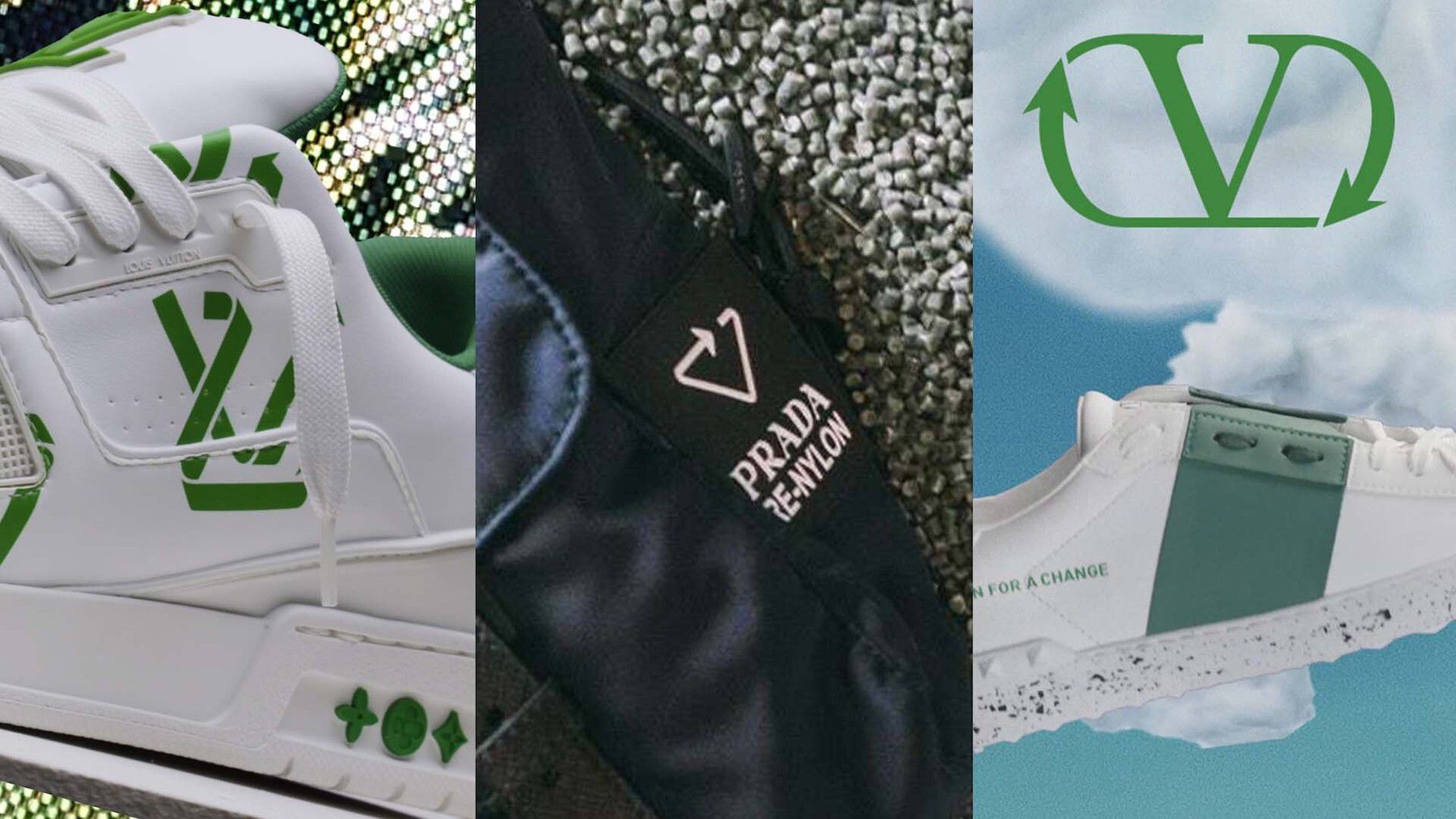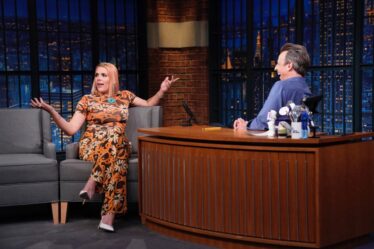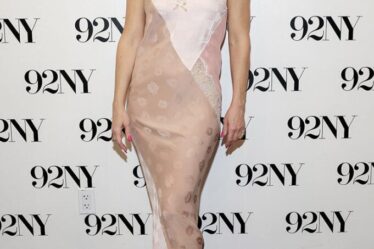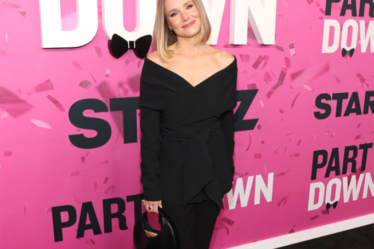
Louis Vuitton has given its classic monogram a sustainability focused makeover for its newest sneaker.
The logo, emblazoned across the shoe in enlarged font, has been modified to resemble a recycling symbol, with the ‘L’ and ‘V’ losing their straight lines and ending in arrows. The trainer, which launches in September, is 90 percent recycled material, according to the brand.
It’s not unusual to see big fashion brands seek to play up efforts to operate more sustainably these days. But adapting something as iconic and central to a major luxury label’s identity as its logo is a big deal, and Louis Vuitton isn’t the only brand experimenting with such moves for select products: Prada has tipped its iconic triangle with an arrow, reminiscent of a recycling sign, while Valentino has similarly added arrow heads to the ring around its ‘V’.
In some ways these moves are emblematic of the central tension in fashion’s fraught relationship with sustainability, blending conspicuous consumption with virtue signalling. But they also speak to real change in the way luxury’s most powerful players are thinking about what drives brand value and resonates with consumers.
Until recently, many big luxury brands were reluctant to talk about sustainability at all. Human rights abuses, chemical pollution and burning piles of excess inventory don’t fit well with the unblemished and opulent aura they sought to cultivate, while luxury consumers saw recycled or secondhand goods as undesirable.
That brands are willing to modify their house symbols to advertise efforts around these issues speaks to a deep change in what they think consumers want and how they conceive of luxury. In essence, it’s savvy marketing that could nonetheless help promote less unsustainable consumption behaviour and products.
“Branding is supposed to send a signal of authenticity,” said Milton Pedraza, founder and chief executive of consulting firm Luxury Institute. “Bigger, older brands think they have to do something to look more modern and with it more sustainable.”
The highly public move also ups pressure on brands to actually deliver on promises to act more sustainably, inviting scrutiny from regulators and consumers.
“Playing with something as iconic as Louis Vuitton’s logo is a powerful move,” said Erin Allweiss, co-founder of communications firm No. 29, which represents brands whose businesses are impact-focused. It’s also “incredibly risky.”
Advertising watchdogs in the US and Europe are cracking down on greenwashing, launching investigations into a number of fashions brands over the last year. Consumers have also been empowered by social media to publicly hold brands to account. Brands raising the profile of their marketing around sustainability need to be prepared to back up their claims with real action.
Louis Vuitton’s new logo was created by late designer Virgil Abloh and first appeared in a series of upcycled garments and accessories featured in the brand’s Spring/Summer 2021 menswear collection. The modified LV emblem was intended to “imbue the ‘old’ with new value,” according to the collection’s show notes.
It’s being deployed now as Louis Vuitton steps up its sustainability efforts in line with commitments laid out by parent-company LVMH last year. Prada’s arrow-tipped logo first appeared in 2019 to signal its ambition to phase out all virgin nylon in its collections. Valentino’s modified logo accompanied the launch of sneakers that included recycled and bio-based materials.
To be sure, these new logos have so far only adorned a handful of products. And for many, leveraging one of fashion’s most effective marketing tools to try and sell sustainability will feel jarringly at odds with the reduction in consumption and business model overhaul required to really curb the industry’s negative impact.
“At the end of the day, it’s capitalism… billions is being spent to get people to buy these products,” said Allweiss. “I don’t think that those who are really into sustainability are wearing giant recycling signs on their garments.”
For more BoF sustainability coverage, sign up now for our new Weekly Sustainability Briefing by Sarah Kent.
Disclosure: LVMH is part of a group of investors who, together, hold a minority interest in The Business of Fashion. All investors have signed shareholders’ documentation guaranteeing BoF’s complete editorial independence.



